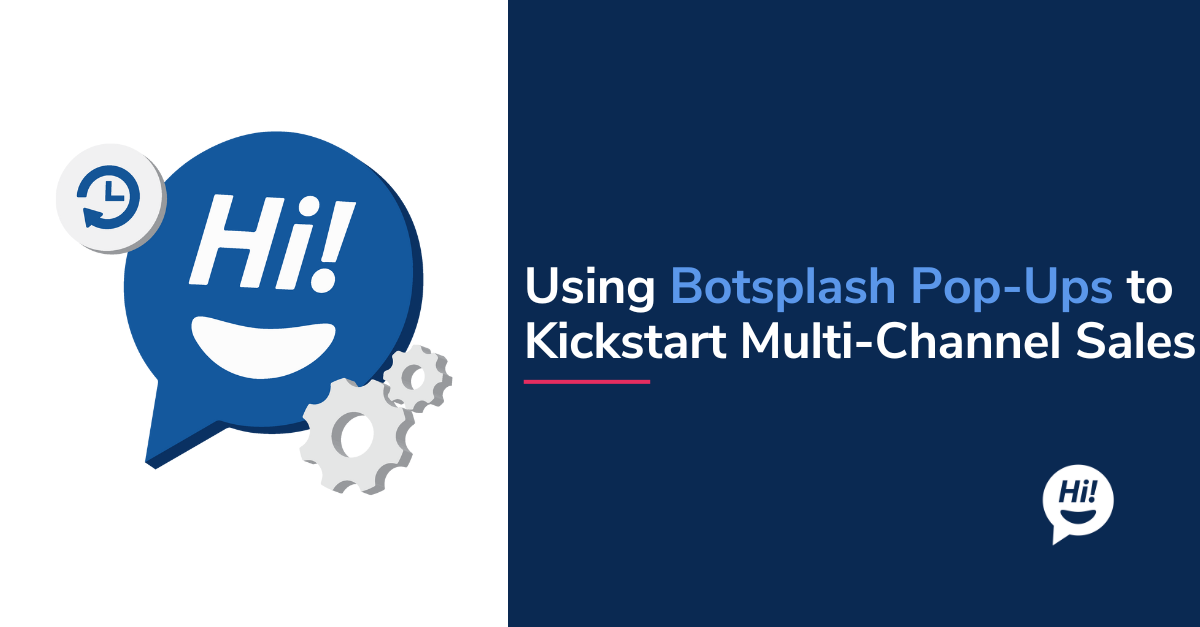Let's say that a self-driving car faces a split-second decision: swerve to avoid a pedestrian or continue straight and risk a head-on collision with another vehicle. Or consider an AI-powered hiring algorithm that inadvertently discriminates against certain job applicants based on biased data. These scenarios highlight the complex ethical dilemmas when AI agents are deployed in real-world applications.
While AI agents offer immense potential to improve efficiency, productivity, and decision-making, they also raise ethical concerns that businesses must carefully consider. As AI technology advances, we must address these issues to ensure the responsible and beneficial development and deployment of AI agents.
Bias in AI Agents: A Hidden Danger
While powerful tools, AI agents can be susceptible to biases inadvertently introduced during their development or training. These biases can arise from various sources, including biased data, algorithms, or even biases in the programming team itself.
How AI Bias Creeps In
- Biased Data: AI models are trained on massive datasets. If these datasets contain biases, the AI agent will likely learn and perpetuate those biases. For instance, if a facial recognition system is trained primarily on images of white people, it may struggle to identify people of color accurately.
- Biased Algorithms: The algorithms used to develop AI models can be biased, leading to discriminatory outcomes. For example, an algorithm designed to predict recidivism rates might disproportionately target people of color, perpetuating systemic biases in the criminal justice system.
- Human Bias: Even the programmers and developers who create AI agents can introduce biases into their work, either intentionally or unintentionally. Personal biases and assumptions can influence the design and implementation of AI models.
The Consequences of AI Bias
Biased AI agents can have far-reaching consequences, including:
- Discrimination: Biased algorithms can perpetuate discrimination against marginalized groups, leading to unfair treatment in areas such as employment, housing, and education.
- Reinforcement of Stereotypes: Biased AI agents can reinforce harmful stereotypes, contributing to social inequality and prejudice.
- Loss of Trust: When AI agents are found to be biased, it can erode public trust in technology and undermine the credibility of AI-powered systems.
To ensure that AI agents are fair and equitable, bias must be addressed at all stages of their development and deployment. This includes using diverse and representative datasets, carefully reviewing algorithms for potential biases, and promoting diversity within AI development teams.

Privacy Concerns in the Age of AI
AI agents, by their nature, require vast amounts of data to learn and perform their tasks effectively. This often involves collecting and processing personal information, raising significant privacy concerns.
Data Collection and Processing
- Scope of Data: AI agents can collect a wide range of personal data, including names, addresses, contact information, financial data, health records, and even biometric information.
- Data Sharing: This collected data may be shared with third-party vendors, partners, or even AI agents, raising questions about data ownership and control.
- Data Retention: AI agents' retention of personal data can pose privacy risks, especially if the data is no longer needed for its intended purpose.
Data Breaches and Misuse
- Vulnerability to Attacks: AI systems are susceptible to cyberattacks and data breaches like any technology. A breach can expose sensitive personal information, resulting in identity theft, financial loss, and reputational damage.
- Misuse of Data: Even without a breach, there is a risk that personal data collected by AI agents could be misused for malicious purposes, such as targeted advertising, discrimination, or surveillance.
Surveillance and Monitoring
- Mass Surveillance: AI agents can be used for mass surveillance, tracking individuals' movements, activities, and behaviors. This raises concerns about government overreach, privacy violations, and the erosion of civil liberties.
- Targeted Surveillance: AI agents can also be used to monitor specific individuals or groups based on their perceived behavior or beliefs. This can lead to discrimination, harassment, and a chilling effect on free speech.
Strong data protection laws and regulations, promotion of transparency and accountability in AI development, and empowerment of individuals to control their personal data are essential to address these privacy concerns.
Accountability and Liability in the AI Age
As AI agents become increasingly sophisticated and autonomous, the question of who is responsible for their actions becomes increasingly complex. This is particularly relevant in cases where AI agents cause harm or damage.
Determining Responsibility
- AI Developers: Developers are often seen as responsible for designing and implementing AI agents. However, establishing direct responsibility can be challenging in cases of unintended consequences or unforeseen harm.
- AI Users: Those who deploy and use AI agents may also bear some responsibility, especially if they fail to exercise due care or follow appropriate guidelines.
- The AI Agent Itself: In some cases, the AI agent itself may be partially responsible for its actions, mainly if it can make independent decisions.
Challenges of Establishing Accountability
- Complexity of AI Systems: AI agents are often complex systems involving multiple components and interactions. This can make it difficult to pinpoint the exact cause of harm or damage and assign responsibility.
- Unforeseen Consequences: AI agents can exhibit unexpected behaviors or make unforeseen decisions, making it difficult to anticipate and prevent harmful outcomes.
- The Global Nature of AI: AI agents are often developed and deployed globally, making it challenging to establish jurisdiction and enforce accountability across borders.
Legal and Ethical Frameworks
To address the challenges of accountability in the AI age, it is essential to develop legal and ethical frameworks that provide clear guidelines and principles. These frameworks should:
- Establish Clear Standards: Define the expected behavior of AI agents and the responsibilities of developers, users, and other stakeholders.
- Address Liability: Determine the legal consequences of AI agents causing harm or damage.
- Promote Transparency and Accountability: Require AI developers to be transparent about the design, development, and deployment of AI agents and hold them accountable for their actions.
- Foster Ethical Development: Encourage the development of AI agents that are aligned with ethical principles and avoid harmful outcomes.
By establishing clear legal and ethical frameworks, we can create a more trustworthy and responsible AI ecosystem that benefits society.

Job Displacement and Economic Impacts of AI Agents
The rise of AI agents has sparked concerns about job displacement and economic inequality. As AI becomes increasingly capable of automating tasks previously performed by humans, there is a risk that certain jobs may become obsolete.
Potential for Job Displacement
- Automation of Routine Tasks: AI agents can automate many routine and repetitive tasks, from data entry and customer service to manufacturing and transportation.
- Skill-Based Displacement: Jobs that require low-level skills or repetitive tasks are particularly vulnerable to automation.
- Economic Inequality: Job displacement can exacerbate economic inequality, as those who lose their jobs may struggle to find new employment or be forced to accept lower-paying positions.
Potential Benefits of AI
- Increased Efficiency and Productivity: AI agents can significantly improve efficiency and productivity, leading to economic growth and job creation in new sectors.
- Innovation and Creativity: By freeing human workers from routine tasks, AI can enable them to focus on more creative and innovative work.
- Improved Quality of Life: AI agents can enhance quality of life by automating dangerous, repetitive, or unpleasant tasks.
Mitigating the Negative Economic Impacts
To mitigate the negative economic impacts of AI, it is essential to adopt strategies that promote:
- Reskilling and Upskilling: Investing in education and training programs to help workers acquire the skills needed for the jobs of the future.
- Job Creation: Supporting the development of new industries and sectors that AI and technology drive.
- Social Safety Nets: Strengthening social safety nets to support workers who AI displaces.
- Ethical AI Development: Ensuring that AI agents are developed and deployed to benefit society rather than exacerbate inequality.
By proactively addressing these challenges, we can harness AI's potential to create a more prosperous and equitable future for all.
Conclusion: Navigating the Ethical Landscape of AI
The development and deployment of AI agents present a complex ethical landscape characterized by concerns related to bias, privacy, accountability, and economic impacts. Addressing the concerns above is crucial to ensure that AI is developed and used responsibly and beneficially.
Establishing ethical guidelines and standards that address these concerns is essential to ensuring that AI is developed and used responsibly. This requires a collaborative effort among researchers, policymakers, and society.
Researchers can develop AI algorithms and systems that are fair, transparent, and accountable. Policymakers can create laws and regulations that promote ethical AI development and protect individual rights. Society can engage in open dialogue and debate about the moral implications of AI and advocate for responsible practices.
By working together, we can navigate the ethical landscape of AI and create a future where AI is used to benefit humanity rather than harm it.
To learn more about Botsplash click the button below to schedule a demo with our team.







